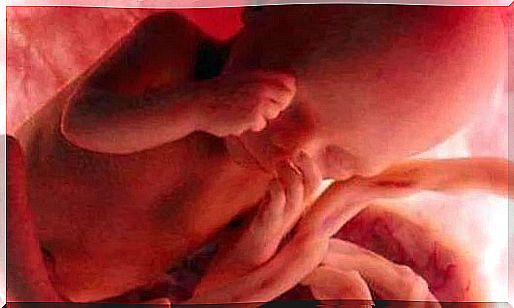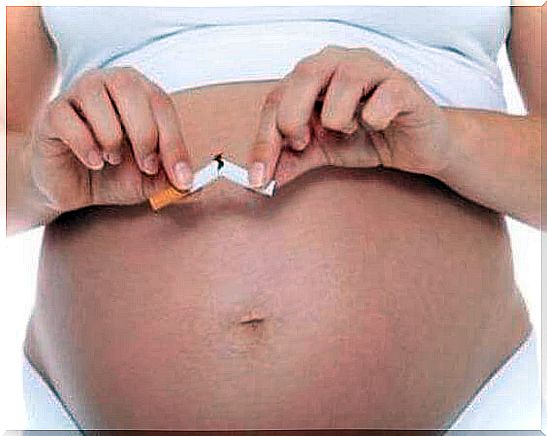The Baby’s DNA May Change If You Smoke During Pregnancy

Just let us know that we can put our little one’s health at risk to think better before smoking. Recent studies have undertaken to reveal the effects that smoking could have on the fetus. Among them, there is even the possibility of modifying the baby’s DNA.
Apparently, the mother who smokes during the pregnancy process puts at risk the development of diseases caused by genetic alterations that can affect her baby. This situation is related to possible complications in the fetal pulmonary system, some types of cancer and malformation of the lips, among others.
How does DNA modification affect the baby?
DNA, or deoxyribonucleic acid, is a molecule whose importance lies in its ability to contain the vital information of each living being. As we know, it contains the chromosomes that determine all the characteristics of people, which, when they undergo changes, give rise to the main birth defects and diseases.
A single change in chromosomes can be responsible for diseases such as Down Syndrome. However, studies have shown that smoking is more related to malformations such as cleft lip. In this sense, studies revealed that this disease could be directly related to tobacco consumption during pregnancy.

According to the results of a study by the National Institute of Environmental Health, although the baby is not able to breathe on its own, those substances that are a result of combustion in the act of smoking are transmitted to the fetus through the placenta. Analysis of a sample produced approximately six thousand different changes in the umbilical cord DNA of smoking mothers.
“We believe that the components produced by the combustion of tobacco, and not the nicotine in cigarettes, are responsible for modifying the genetic code”
-Stephanie London, epidemiologist –
Although it is supposed that smoking could be a possible cause of taste or lip malformation, it was only recently discovered that this malformation was a product of DNA modification. The modified genes have also been found to be related to the formation of the nervous and pulmonary systems. This discovery occurred due to the study of the incidence of this act in other diseases.
The study
A group of researchers from the National Institute of Environmental Health in the United States, headed by Dr. Stephanie London, carried out the genetic analysis of more than six thousand samples of umbilical cords in different parts of the world. To classify these samples, a percentage division was made between “non-smokers”, “occasional smokers” and “assiduous smokers” mothers.
The results were published in the American Journal of Human Genetics. After delivery, the DNA of the babies was collected and analyzed. Other studies had determined negative incidences of smoking in the fetus. But until then, it was not known what the dangerous modification was capable of producing at the genetic level.
As a result, experts were able to prove that smoking could affect people even before they were born. Furthermore, the possible modification could also be related to other premature health complications.
On this occasion, it was a study that a group of experts carried out in order to identify the main factors causing a genetic modification. The purpose was to determine whether elements such as the mother’s overweight, environmental contamination or alcohol and tobacco consumption could be the cause of such changes in the fetus or during childhood.

Other risks for your baby if you smoke during pregnancy
In addition to the dangerous genetic modification experts have discovered, if you smoke during pregnancy, your baby is at risk of being affected in many ways. As we’ve said before, maybe it’s not just nicotine that gets to the fetus through the blood. The combustion product has also been shown to be hazardous.
If you smoke during pregnancy, your baby is at risk for the following complications.
- Delayed growth of the fetus
- miscarriage
- Stress in newborns
- Low weight at birth
- Sudden Infant Death Syndrome
- Risk of developing obesity
- Possible behavior and/or learning problems
- Prone to tobacco addiction









